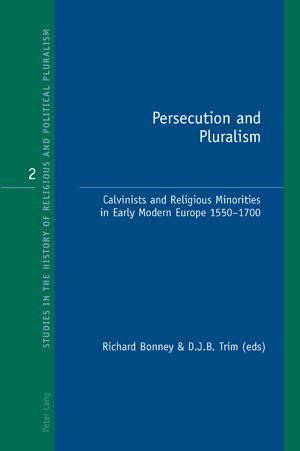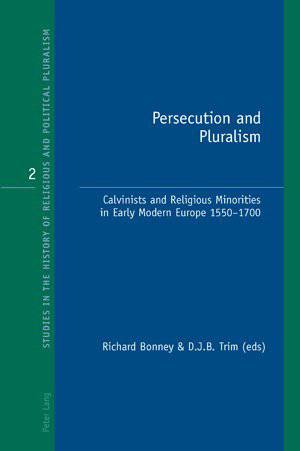
- Afhalen na 1 uur in een winkel met voorraad
- Gratis thuislevering in België vanaf € 30
- Ruim aanbod met 7 miljoen producten
- Afhalen na 1 uur in een winkel met voorraad
- Gratis thuislevering in België vanaf € 30
- Ruim aanbod met 7 miljoen producten
Zoeken
Persecution and Pluralism
Calvinists and Religious Minorities in Early Modern Europe, 1550-1700
€ 67,45
+ 134 punten
Omschrijving
With one exception, the papers collected here were first presented at a conference sponsored by the British Academy held at Newbold College, Berkshire, in 1999. This volume provides a historical perspective to the emerging literature on pluralism. A range of experts examine how Calvinists in early modern France, England, Hungary and the Netherlands related to members of other faith communities and to society in general. The essays explore the importance of Calvinists' separateness and potent sense of identity. To what extent did this enable them to survive persecution? Did it at times actually induce repression? Where Calvinists held political power, why did they often turn from persecuted into persecutors? How did they relate to (Ana)Baptists, Quakers and Catholics, for example? The conventional wisdom that toleration (and, in consequence, pluralism) resulted from a waning in religious zeal is queried and alternative explanations considered. Finally, the concept of 'pluralism' itself is investigated.
Specificaties
Betrokkenen
- Uitgeverij:
Inhoud
- Aantal bladzijden:
- 328
- Taal:
- Engels
- Reeks:
- Reeksnummer:
- nr. 2
Eigenschappen
- Productcode (EAN):
- 9783039105700
- Verschijningsdatum:
- 3/01/2007
- Uitvoering:
- Paperback
- Formaat:
- Trade paperback (VS)
- Afmetingen:
- 220 mm x 150 mm
- Gewicht:
- 469 g

Alleen bij Standaard Boekhandel
+ 134 punten op je klantenkaart van Standaard Boekhandel
Beoordelingen
We publiceren alleen reviews die voldoen aan de voorwaarden voor reviews. Bekijk onze voorwaarden voor reviews.










